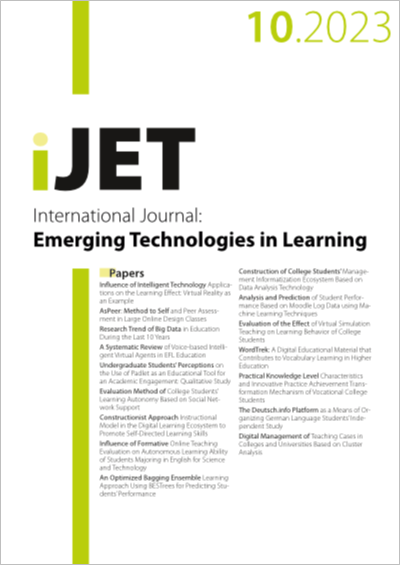Undergraduate Students’ Perceptions on the Use of Padlet as an Educational Tool for an Academic Engagement: Qualitative Study
DOI:
https://doi.org/10.3991/ijet.v18i10.38771Keywords:
Padlet use, undergraduate students’ perceptions, academic engagement, advantages, challengesAbstract
This research study aimed at investigating the undergraduate students’ perceptions of the opportunities and challenges of utilizing Padlet and its effects on academic engagement. The research followed a qualitative approach. Fifteen students from Qatar University's Research Methods course were intentionally chosen to demonstrate the diversity of specialization (humanitarian, scientific) and academic stage (first year - fourth year). Three semi-structured interviews were conducted to collect the research data that analyzed according to thematic analysis strategies. The researchers used two strategies for achieving trustworthiness in this study research. The findings of this research revealed that the participants were enthusiastic about their experience with Padlet. They mentioned various advantages related to academic engagement such as enhancing active learning. The participants highlighted the role of Padlet in enhancing critical thinking skills. Further, the provided feedback via Padlet was constructive. Despite the advantages, the participant also noted some difficulties encountered when using Padlet. Recommendations for higher education institutions and future ramifications were considered.
Downloads
Published
How to Cite
Issue
Section
License
Copyright (c) 2023 Yousef M. Arouri, Diala Hamaidi, Aisha Al-Kaabi, Asma Al Attiyah, Marwa ElKhouly

This work is licensed under a Creative Commons Attribution 4.0 International License.



